Your Japanese stiltgrass look alikes images are ready in this website. Japanese stiltgrass look alikes are a topic that is being searched for and liked by netizens today. You can Get the Japanese stiltgrass look alikes files here. Download all royalty-free photos and vectors.
If you’re searching for japanese stiltgrass look alikes pictures information connected with to the japanese stiltgrass look alikes keyword, you have visit the ideal site. Our website always provides you with suggestions for seeking the maximum quality video and picture content, please kindly search and locate more informative video content and graphics that match your interests.
Japanese Stiltgrass Look Alikes. The leaves are smooth and if crushed produce a spicy fragrance. Japanese stiltgrass Microstegium vimineum also called Nepalese browntop is an aggressive invader of forest lands throughout the eastern United States. Usually be found in drier sites. Shawn Askew Virginia Tech Tier 2 Noxious Weeds Beach vitex Vitex rotundifolia Beach vitex is a woody shrub with circular leaves typically found on coastlines.
 Grapevine Stems Have Tendrils Which Are Used For Support And Attachment Tendrils Are Thigmotropic Sensitive Invasive Plants Plant Identification Grape Vines From pinterest.com
Grapevine Stems Have Tendrils Which Are Used For Support And Attachment Tendrils Are Thigmotropic Sensitive Invasive Plants Plant Identification Grape Vines From pinterest.com
Forests forest edges floodplains marshes meadows fields riverbanks lake shore disturbed areas. Native Look-alikes White grass Leersia virginica is found in similar habitats although it seldom forms dense mats like Japanese stiltgrass. Look-alikes deertongue grass Dicanthelium clandestinum Arrangement of flowers is pyramid shaped Slightly larger covered with stiff hairs and its leaves are generally longer and pointy in shape. Its introduction into the United States was accidental likely a result of its use as a packing material for porcelain. Japanese stiltgrass seedlings in early spring. Stiltgrass is considered one of the most damaging invasive plant.
Japanese Stiltgrass.
Japanese stiltgrass Microstegium vimineum is an annual grass that germinates in the spring and dies back in the fall. Japanese stiltgrass is commonly mistaken for the native perennial Virginia cutgrass Leersia virginica or some of. It is important for you to determine if the plants you are looking at are native grasses that should be there or are Japanese Stiltgrass. Being a monocot the leaves have parallel leaf venation and later in the season have a white or silver leaf midrib. Because of numerous look-alikes identifying Japanese stiltgrass can be challenging. Japanese stilt grass was first documented in Tennessee in 1919.
 Source: inaturalist.org
Source: inaturalist.org
Japanese Stiltgrass Microstegium vimineum is an annual grass that can cover forest floors where tree canopy is open and there are few native shrubs. Microstegium vimineum Trin A. Stiltgrass is considered one of the most damaging invasive plant. Japanese stiltgrass is native to Asia including hina India Japan Korea and Malaysia. Stiltgrass is easily pulled up compared to perennial grasses and has.
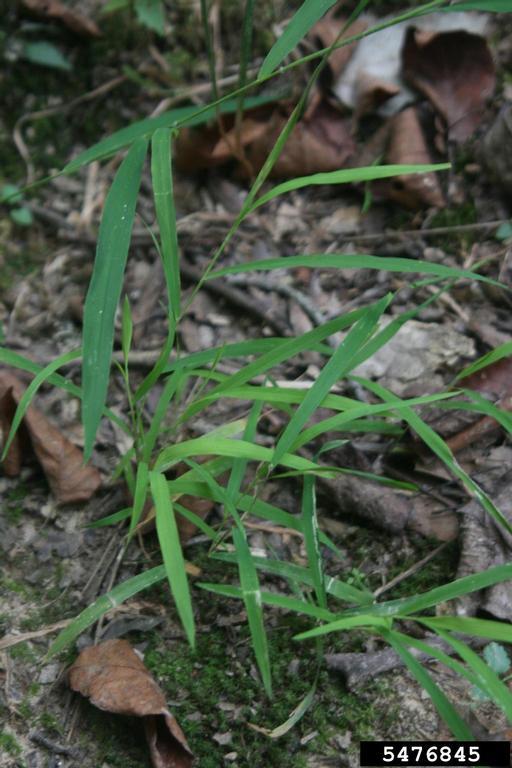 Source: vtinvasives.org
Source: vtinvasives.org
Alabama Cooperative Extension System. Leaves can be 1-15 inches long and form in pairs along the stem. Japanese Stiltgrass infestation The primary mode of spread is through water and wildlife and human activity moving the prolific number of seeds 100 -1000 per plant thought to remain viable up to 7 years in the soil. Microstegium vimineum Trin A. Its roots look like above-ground stilts and are easily rooted.
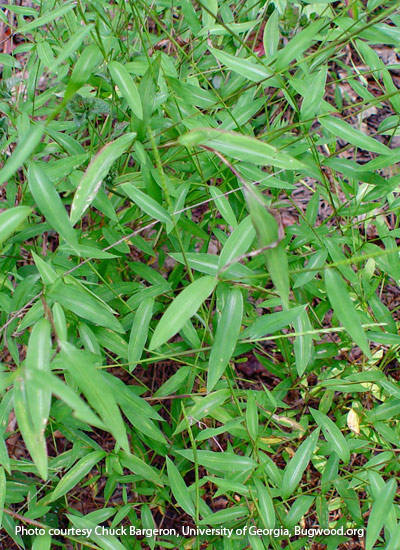 Source: gardengatemagazine.com
Source: gardengatemagazine.com
The leaves are smooth and if crushed produce a spicy fragrance. Look for asymmetrical leaves with a shiny midrib and the stilt-like growth form. Japanese stiltgrass seedlings in early spring. Ackground and ommon Look-alikes. Scientists dont know how it arrived here but within a decade it had spread to cover thousands of acres on public and private land in both Maryland and Virginia the only two states where it has been documented.
 Source: pinterest.com
Source: pinterest.com
Alabama Cooperative Extension System. Alabama Cooperative Extension System. Stilt grass reproduces exclusively by. Leaves can be 1-15 inches long and form in pairs along the stem. It is important to know how to recognize and differentiate stiltgrass from look-alikes.
 Source: inaturalist.org
Source: inaturalist.org
It is important for you to determine if the plants you are looking at are native grasses that should be there or are Japanese Stiltgrass. Stiltgrass is easily pulled up compared to perennial grasses and has. Scientists dont know how it arrived here but within a decade it had spread to cover thousands of acres on public and private land in both Maryland and Virginia the only two states where it has been documented. Ackground and ommon Look-alikes. It was introduced to Tennessee in 1919 as material used to package porcelain.
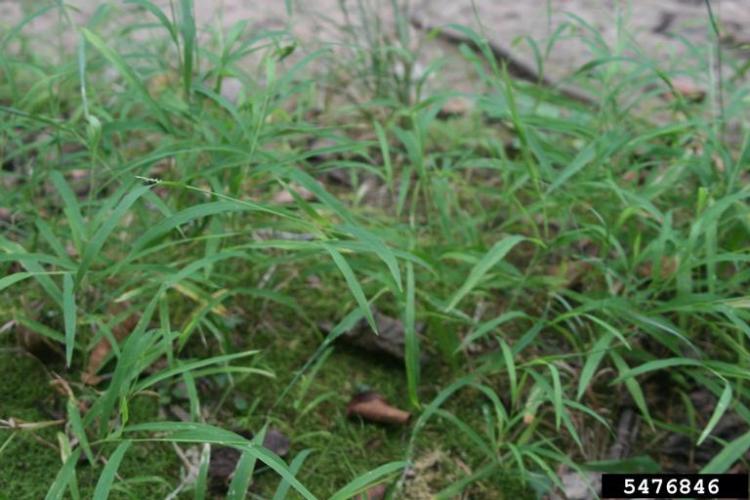 Source: vtinvasives.org
Source: vtinvasives.org
It is important for you to determine if the plants you are looking at are native grasses that should be there or are Japanese Stiltgrass. Stilt grass reproduces exclusively by. Its seeds which float and primarily spread via water spread prolifically. Photo by Nick Seaton. Japanese stilt grass was first documented in Tennessee in 1919.
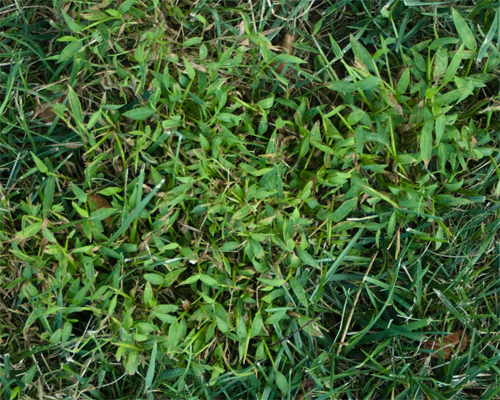 Source: njaes.rutgers.edu
Source: njaes.rutgers.edu
It is important to know how to recognize and differentiate stiltgrass from look-alikes. Stilt grass reproduces exclusively by. Attention to new infestations should be a priority. Its inch long leaves have a. Infestations can impact the diversity of native species reduce wildlife habitat and disrupt important ecosystem functions.
 Source: invasivegarden.com
Source: invasivegarden.com
Japanese stiltgrass is native to Asia including hina India Japan Korea and Malaysia. Native Look-alikes White grass Leersia virginica is found in similar habitats although it seldom forms dense mats like Japanese stiltgrass. Japanese Stiltgrass Microstegium vimineum is an annual grass that can cover forest floors where tree canopy is open and there are few native shrubs. The leaves are smooth and if crushed produce a spicy fragrance. Attention to new infestations should be a priority.
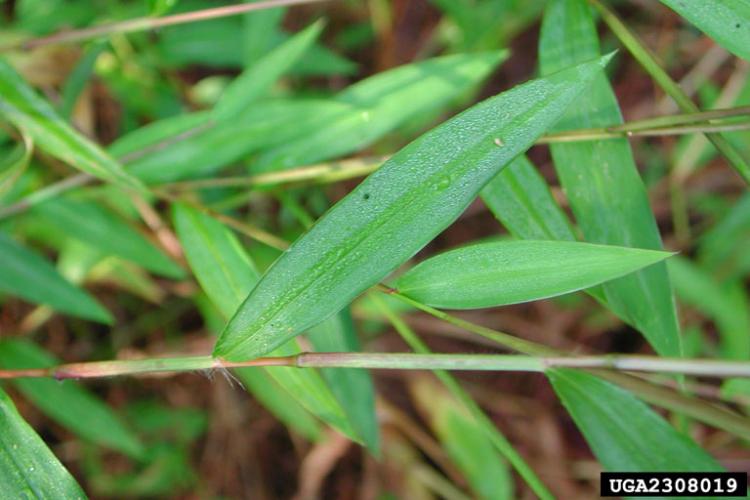 Source: vtinvasives.org
Source: vtinvasives.org
This Asian grass was first discovered growing in small patches in Patapsco Valley State Park in the 1990s. Japanese stiltgrass Microstegium vimineum also called Nepalese browntop is an aggressive invader of forest lands throughout the eastern United States. FS-2 Glyphosate 300. Scientists dont know how it arrived here but within a decade it had spread to cover thousands of acres on public and private land in both Maryland and Virginia the only two states where it has been documented. Ackground and ommon Look-alikes.
 Source: pinterest.com
Source: pinterest.com
Native Look-alikes White grass Leersia virginica is found in similar habitats although it seldom forms dense mats like Japanese stiltgrass. Infestations can impact the diversity of native species reduce wildlife habitat and disrupt important ecosystem functions. Species within the Leersia and Polygonum may resemble Japanese stiltgrass. Camus Grass family Poaceae. Japanese Stiltgrass looks very similar to some native plants.
 Source: pinterest.com
Source: pinterest.com
Japanese Stiltgrass infestation The primary mode of spread is through water and wildlife and human activity moving the prolific number of seeds 100 -1000 per plant thought to remain viable up to 7 years in the soil. Forests forest edges floodplains marshes meadows fields riverbanks lake shore disturbed areas. Stilt grass reproduces exclusively by seed. Camus Grass family Poaceae. During a single season it can grow up to 3 and a half feet-tall and its lance-shaped leaves can be anywhere between 1 and 3 inches.
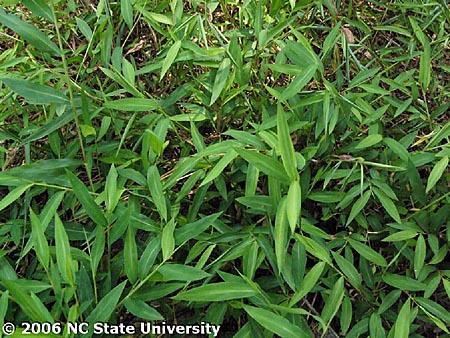 Source: fairfaxgardening.org
Source: fairfaxgardening.org
Species within the Leersia and Polygonum may resemble Japanese stiltgrass. Being a monocot the leaves have parallel leaf venation and later in the season have a white or silver leaf midrib. Cutgrass blooms earlier August has hairy nodes and does not have the silvery stripe down the midrib. Stiltgrass is considered one of the most damaging invasive plant. Especially before you undertake any control measures.
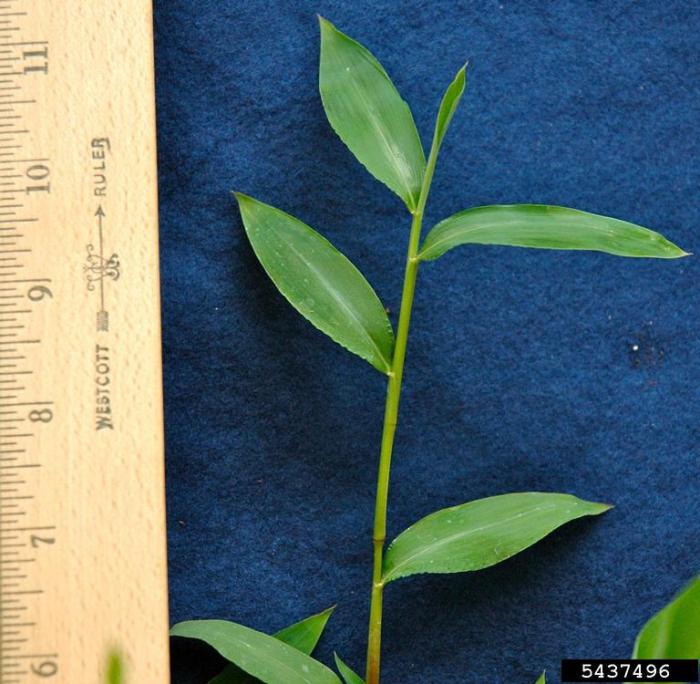 Source: vtinvasives.org
Source: vtinvasives.org
This publication gives simple descriptions and clear pictures of these characteristics along with details on how to distinguish several common look. Species within the Leersia and Polygonum may resemble Japanese stiltgrass. Its roots look like above-ground stilts and are easily rooted. Virginia cutgrass Leersia virginica looks similar and grows in forested areas. Japanese stiltgrass is commonly mistaken for the native perennial Virginia cutgrass Leersia virginica or some of.
 Source: pinterest.com
Source: pinterest.com
Japanese Stiltgrass looks very similar to some native plants. Its seeds which float and primarily spread via water spread prolifically. Japanese Stiltgrass infestation The primary mode of spread is through water and wildlife and human activity moving the prolific number of seeds 100 -1000 per plant thought to remain viable up to 7 years in the soil. Its roots look like above-ground stilts and are easily rooted. Look-alikes cutgrass Leersia virginica Native grass similar in appearance and habitat Flowers earlier has sharp leaf edges and has more open and branched flowers.
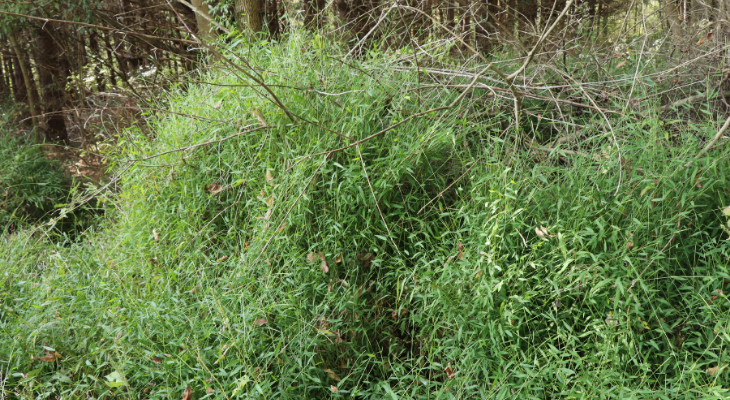 Source: extension.illinois.edu
Source: extension.illinois.edu
Shawn Askew Virginia Tech Tier 2 Noxious Weeds Beach vitex Vitex rotundifolia Beach vitex is a woody shrub with circular leaves typically found on coastlines. Japanese Stiltgrass Microstegium vimineum is an annual grass that can cover forest floors where tree canopy is open and there are few native shrubs. Native Look-alikes White grass Leersia virginica is found in similar habitats although it seldom forms dense mats like Japanese stiltgrass. Look for asymmetrical leaves with a shiny midrib and the. Stiltgrass is considered one of the most damaging invasive plant.
 Source: inaturalist.org
Source: inaturalist.org
However neither will have the tell-tail silver midrib that is the key identifying feature of stiltgrass. Japanese stiltgrass Microstegium vimineum also called Nepalese browntop is an aggressive invader of forest lands throughout the eastern United States. Stiltgrass is considered one of the most damaging invasive plant. Microstegium vimineum Trin A. Another trait of Japanese.
 Source: pinterest.com
Source: pinterest.com
Japanese Stiltgrass infestation The primary mode of spread is through water and wildlife and human activity moving the prolific number of seeds 100 -1000 per plant thought to remain viable up to 7 years in the soil. Stiltgrass can look like several native grasses. Japanese stilt grass was first documented in Tennessee in 1919. Japanese stiltgrass Microstegium vimineum also called Nepalese browntop is an aggressive invader of forest lands throughout the eastern United States. Photo by Nick Seaton.
 Source: inaturalist.org
Source: inaturalist.org
Some grasses that Japanese Stiltgrass can be confused with. Forests forest edges floodplains marshes meadows fields riverbanks lake shore disturbed areas. Attention to new infestations should be a priority. Its flower spike is much larger up to 10 inches long and its stem has patches of dense white hair around each leaf base. During a single season it can grow up to 3 and a half feet-tall and its lance-shaped leaves can be anywhere between 1 and 3 inches.
This site is an open community for users to submit their favorite wallpapers on the internet, all images or pictures in this website are for personal wallpaper use only, it is stricly prohibited to use this wallpaper for commercial purposes, if you are the author and find this image is shared without your permission, please kindly raise a DMCA report to Us.
If you find this site helpful, please support us by sharing this posts to your own social media accounts like Facebook, Instagram and so on or you can also bookmark this blog page with the title japanese stiltgrass look alikes by using Ctrl + D for devices a laptop with a Windows operating system or Command + D for laptops with an Apple operating system. If you use a smartphone, you can also use the drawer menu of the browser you are using. Whether it’s a Windows, Mac, iOS or Android operating system, you will still be able to bookmark this website.






